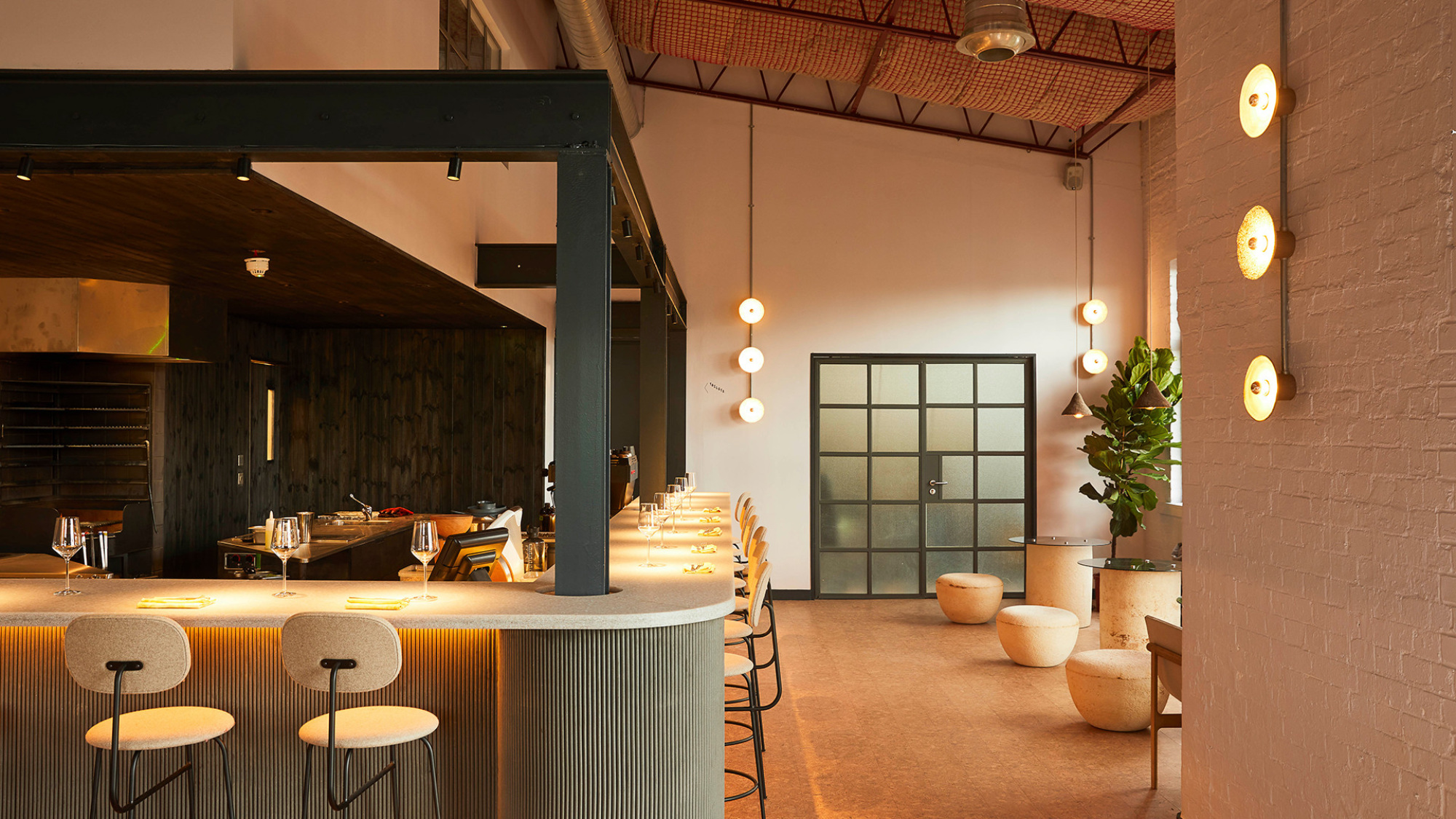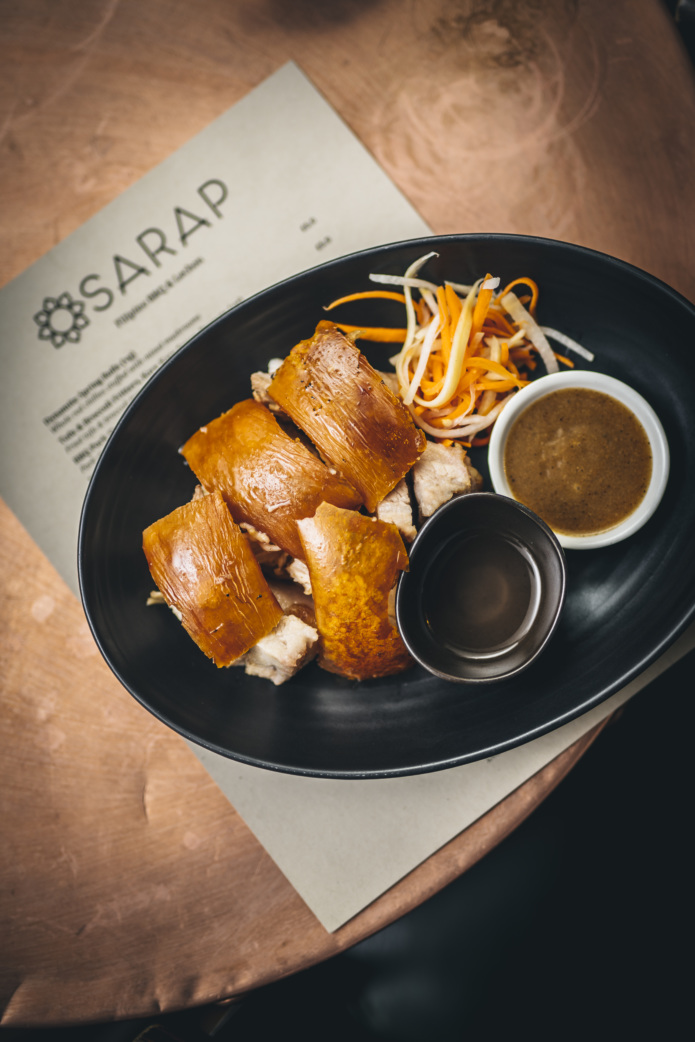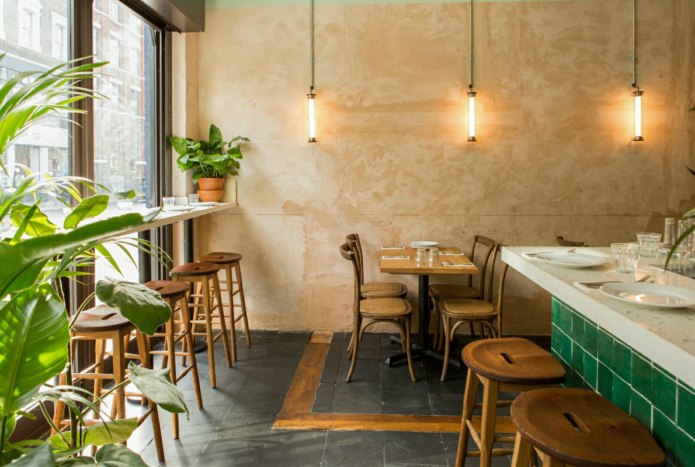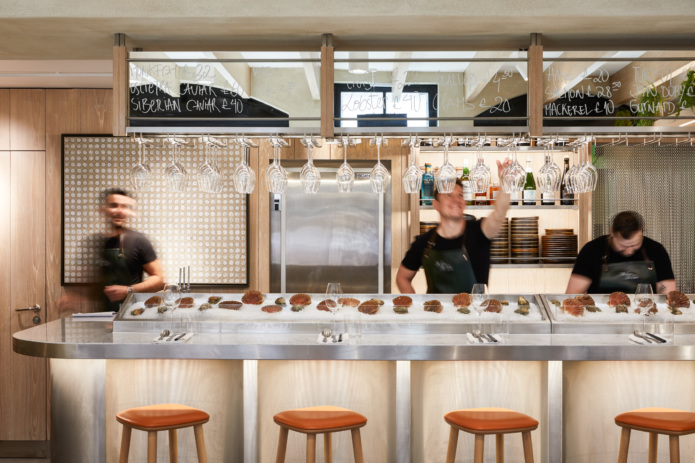Sarap BAon
Brixton
Close

In restaurant years, ten years is practically a lifetime. In 2010, we were all fawning over a new burger joint named Byron, Tony Blair was giving evidence to the Iraq inquiry, and Apple had just launched something called an iPad. Fast-forward to the present day, and the emphasis on fine dining in London has firmly shifted to a focus on the casual; sharing plates have become the norm, and eschewing meat no longer makes you an outsider.
So where does that leave us today? The world is a different place today, but our dining decisions are still influenced by what’s happening around us. Likewise, many of the choices that restaurant owners and chefs make are as dictated by cultural zeitgeist and the economy as their palates. Here’s what you’ll be seeing more of this year.
Second and third-gen chefs will freely interpret the food of their upbringings.
Cooks with roots stretching across the world — particularly, the Southeast Asian and West African diaspora — will take their experiences and express them as it relates to their personal identities. That means breaking down the expectations that earlier generations faced with regards to notions of traditions and authenticity. The result? For these restaurants, that means more freedom from the assimilation cuisines of generations past, and delicious, creative takes on recognisable flavours for diners.
A perfect example of this movement is Brixton’s newly-opened Sarap, where chef Budgie Montoya’s food is a nuanced reflection of his Filipino heritage, Sydney upbringing, and London’s diverse food scene. Similarly, Elizabeth Haigh riffs on classic Singaporean dishes — executed with inimitable panache — at Mei Mei in Borough Market. Looking ahead, London also gets two standout West African spots courtesy of Chuku’s in Seven Sisters and the contemporary Akoko in Fitzrovia.

We’ll continue to question what’s on our plate even more…
Food miles are so 2019. While more of us continue to care about what’s on our plate (and how it got there), the issue of food waste — and the inefficiencies of the traditional restaurant — is increasingly being considered. Doug McMaster’s Silo presents a potential gamechanger, with leftovers from its standout tasting menu being repurposed into beer and compost, and every facet of its design devoted to eliminating waste. Meanwhile, over in Southwark, Native’s religious approach to sourcing and seasonality (even in a city where every restaurant touts such credentials) translates to exceptional dishes centred on wild, indigenous ingredients, and, as a bonus, a much smaller carbon footprint.
…while more of us will turn to vegetarian cooking purely for pleasure.
Breathtaking vegetarian and vegan cooking has always existed in London, particularly in its South Asian and Kurdish communities (the latter spectacularly demonstrated by Nandine, one of last year’s biggest success stories). In Spitalfields, Bubala broke the mould as perhaps the first entirely vegetarian restaurant billed on the excellence of its food, as opposed to what it didn’t serve, with the no-nonsense Simplicity Burger following closely behind. As London’s chefs continue to focus on outstanding vegetables, fruit and mushrooms, expect a few mould-breaking dishes along the way (and a raft of homages) which, in turn, will shift the balance of a typical menu in favour of meat-free dishes.

Residencies and collaborations will be the new normal.
While there were plenty of fêted openings last year, the must-visit places on most people’s lips were chef residencies and collaborations. Four Legs and 10 Heddon Street’s Mayfair residency (now in Soho as Manteca) were huge hits, while Ikoyi, Counter Culture and Ombra’s guest chef series were standouts; even Tayer + Elementary’s chef duo (TaTa Eatery) started as a series of pop-ups.
Of course, their ephemeral nature and catch-it-while-you-can spirit is part of the appeal. In turn, restaurants get the chance to work with respected peers while diners receive one-off menus and dishes in return — and let’s be real, bragging rights. It’s a win-win that shows little sign of slowing down.
We’ll spend more time hanging out in bakeries and wine bars.
As Londoners, it’s now the norm to meet friends throughout the week for dinner, or a drink and snack. Conversely, it’s a pretty tough time for restaurants, so the question is: How do you manage risk and make sure that you’re busy throughout the day?
The answer, as shown by diverse spaces like Darby’s, The Sea, The Sea, and Fare, is to ensure that there’s always a reason for diners to visit. Whether that means pastries and coffee first thing in the morning, wine and small plates at night (think Flor or Quality Wines), or even a Chelsea fish counter-cum-champagne and seafood bar, the city’s restaurants have found an answer — and for diners, that means an all-day buzz and multiple excuses to pop in to a favourite spot. Next up: a new wine bar from Violet Bakery, Turkish pastries and natural wine at Oklava Bakery & Wine, and all-day dining from the Levan boys.

And there’ll just be more sequels in general.
When you’re onto a sure thing, sometimes the answer is to give people more of what they want. Get excited: Big Mamma have confirmed a Covent Garden follow-up to their smash hits Gloria and Circolo Popolare, while Din Tai Fung are opening another temple to soup dumplings at Centre Point. Padella is re-upping in Shoreditch with a new pasta bar, and Noble Rot Soho is confirmed. In South London, Kudu are opening not one but two new sites in Peckham, with the aptly named Smokey Kudu and Little Kudu proffering cocktails and small plates respectively, while Smoke & Salt are opening a new restaurant in Tooting.
But really, we’ll still all be talking about Brexit.
It’s worth keeping in mind that the unifying theme here is the economic uncertainty surrounding Brexit — otherwise chefs would be able to gamble on permanent restaurants and new concepts without worrying about their thin profit margins being eroded. Some, like Leroy owner Ed Thaw, have seen the upheaval as an opportunity to look at opportunities closer to home (sourcing more and more of the restaurant’s produce and wine from Wales and East Anglia). For restaurant die-hards, understanding the why helps when it comes to making decisions on where to dine, especially when it feels like there’s more choice than ever.